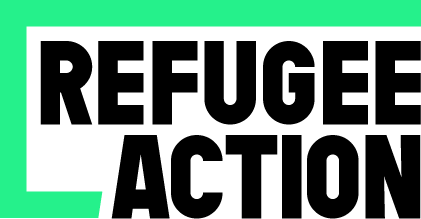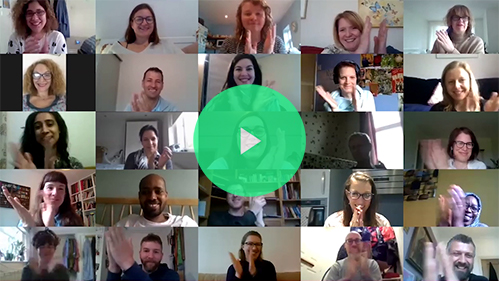|
Dear Emily,
The murder of George Floyd in the United States was a racist act, and a horrifying reminder of the damage that structural racism causes.
When our thoughts inevitably turn to comparisons between structural racism in the UK and the US, the question is not whether the problem is ‘as bad’, but whether the institutions of British society treat black lives with dignity. In so many ways, they do not.
We support refugees and people seeking asylum who have suffered racist repression in countries all over the world. The issue is global, but our work is in the UK - where most of the people seeking safety are not white.
The killing of George Floyd and its aftermath has been followed by the recent Public Health England report on the increased severity of the coronavirus crisis on black, Asian and minority ethnic (BAME) communities in the UK. These events have caused us to reflect on our specific role and continuing practical steps to tackle racism of all kinds, while recognising the enormity of systemic racism as an issue.
BAME groups in the UK have poorer health outcomes, lower employment levels, less representation in politics and, in our sector, less representation in charity leadership. We all have a responsibility to tackle these and many other injustices.
Refugee Action exists to help refugees and people seeking asylum access justice and rebuild their lives. Infuriatingly, racism and hate crime are two common barriers to this goal. These are the words of a family we worked with that were forced to move house because of the severity of racist targeting:
‘They only target us and an African neighbour. At first I thought it was because we are Muslim and my wife wears a veil, but when I saw him getting harassed too, I knew it was because of our skin colour.’
In the present moment, we’re deeply concerned by the unequal impact of the coronavirus crisis on BAME people, including the people we help. We already knew that BAME communities were at greater risk of catching this virus and of dying from it. We need more action now to reduce these risks.
But the Government is failing to step up to this challenge. It recognises that people need extra help in these circumstances, responding with a furlough scheme for workers and a £20 a week increase to Universal Credit. But, despite 5,000 of our supporters writing to their MPs, nothing has been done to increase Asylum Support payments - leaving people to survive on £5.39 a day in the most difficult circumstances for decades.
If people seeking asylum were a predominantly white group, would more have been done to support them?
Alongside speaking out, Refugee Action must also continue to listen and learn, to look at ourselves and the wider charity sector and counter the effects of privilege and structural racism in our own work and practices.
Standing up for the rights of refugees and people seeking asylum is a necessary part of anti-racism in the UK. It's central to building a safer, more welcoming society.
Best wishes,
Stephen Hale OBE
Chief Executive
|

























 Arts and Entertainment
Arts and Entertainment Business and Industry
Business and Industry Computer and Electronics
Computer and Electronics Games
Games Health
Health Internet and Telecom
Internet and Telecom Shopping
Shopping Sports
Sports Travel
Travel More
More